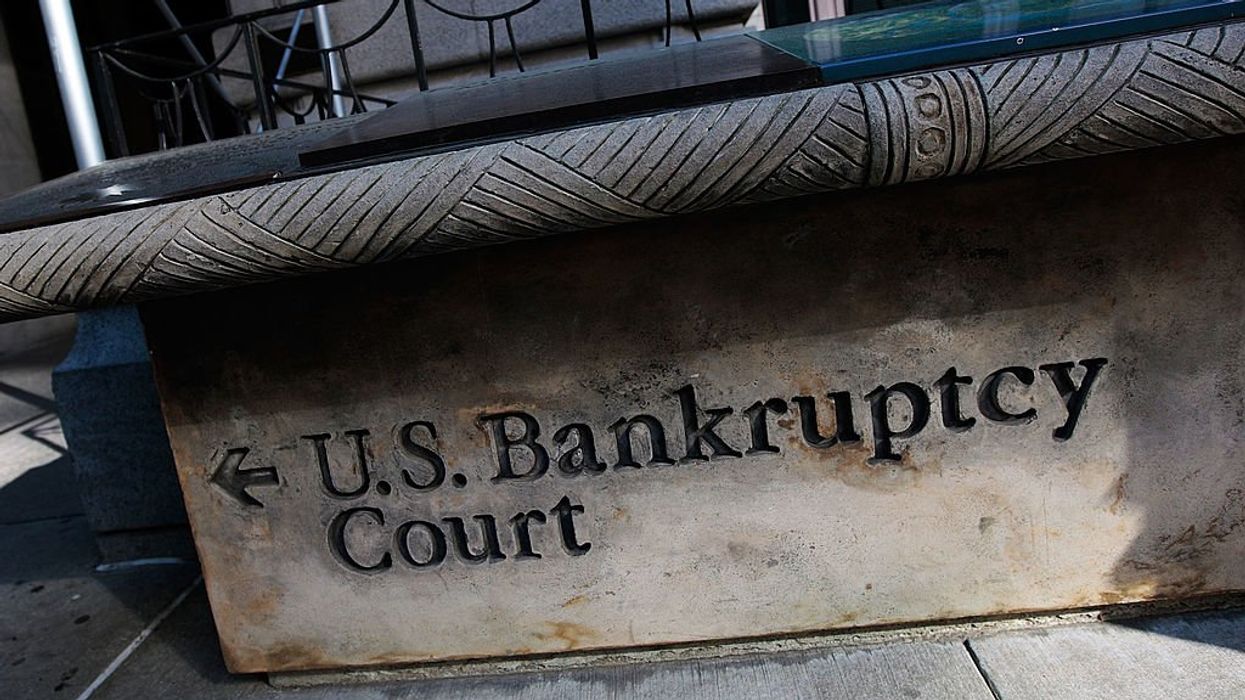Most Americans consider acts of radical Islamic terrorism a relatively recent problem. They aren’t. In fact, America has been dealing with radical Islamists for over 200 years.
In this four-part series, we’ll cover the beginnings of America’s troubles with Islamic terrorism, specific terror groups like Boko Haram and ISIS, and why terrorism increases when nations fail to recognize its threat.
The four-part series is compiled below for your convenience.
Terrorism Part I: Foundations of Islamic Terrorism
Americans first suffered at the hands of Islamists in 1785. They were kidnapped and ransomed or sold into slavery. Goods were stolen from merchant ships and the ships confiscated repeatedly.
Prior to gaining its independence, America was under the protection of the British Navy in the region and didn’t have to deal with the attacks. But in 1785, Britain let it be known that the Americans were no longer their concern.
The problem became so severe that Thomas Jefferson sailed for London to meet with the ambassador from Tripoli. There he learned the pirates belief that their actions were founded on the laws of their prophet and written in their Koran. These Islamic laws stated that all nations not acknowledging their authority were sinners, and it was their right and duty to make war upon them, making slaves of all they could. And every Muslim slain in battle was sure to go to paradise.
Sound familiar?
So American administrations lapsed into a policy of appeasement, bribing the pirates and paying an annual tribute amounting to 20 percent of the nation’s GDP — the equivalent of $760 billion today.
In 1801, President Thomas Jefferson had had enough and stopped paying the tribute, and the Pasha of Tripoli declared war on the United States. America entered her first foreign war. By 1805, the U.S. Navy had won the war and subdued the pirates into signing a treaty to end all tributes and violence against U.S. ships sailing the Mediterranean.
However, peace only lasted two years, with radical Islamists attacking American ships, signing treaties and violating those treaties, only to be stopped again by American force. This cycle went on through the presidency of James Madison, ending only with the French Invasion of Algiers in 1830.
Even America’s Founders — Washington, Jefferson and Madison — had to deal with Islamic extremists. Even they had a hard time understanding what they were up against and how to deal with it. Our Founders also learned that when the interests of nations, in their case Britain and France, don’t align with their own, terrorist activity is not only not dealt with, it’s actually encouraged.
Terrorism Part II: Boko Haram
When Americans think of terrorists, they nearly always think of al-Qaeda or ISIS. But there is a group of bloodthirsty terrorists headquartered in Nigeria that have killed far more than either of those organizations: Boko Haram, which means “western education is forbidden.”
Boko Haram was founded in 2000 to overthrow the Nigerian government and usher in an Islamic state. The group frequently uses bombings, assassinations and kidnappings, with female victims being sold into sex slavery.
In 2009, Boko Haram carried out a series of attacks on police stations and other government buildings. This led to shoot-outs in the streets where hundreds of Boko Haram supporters were killed, and thousands of residents fled the city. Nigeria’s security forces eventually seized the group’s headquarters, capturing its fighters and killing their leader Mohammed Yusuf. His body was shown on state television, and the security forces declared Boko Haram finished.
However, Boko Haram simply regrouped under a new leader, Abubakar Shekau, and stepped up their insurgency. In tactics and results, the menace from Boko Haram has actually worsened. They have used children as suicide bombers, often drugging them against their will to act as explosives. One in five suicide attacks are done by children. According to UNICEF, 1.3 million children have been forced from their homes across four separate countries: Cameroon, Chad, Niger, and Nigeria.
In 2014, Boko terrorists raided a school in the town of Chibok, kidnapping more than 200 girls from their school dormitory in the middle of the night. Boko Haram believed that the girls had offended Allah by being Christian and by having the nerve to go to school. Therefore, they reasoned, Allah would want them to be enslaved. The girls, many of whom are still unaccounted for, were sold as sex slaves, forced to convert and marry Boko Haram fighters or killed.
In January 2015, Boko Haram burned 16 villages to the ground, leaving piles of bodies so deep that survivors couldn’t count them all. That same month, Boko Haram attacked the Nigerian town of Baga, killing an estimated 2,000 civilians, making it one of the largest terrorist atrocities in world history, perhaps second only to 9/11 in the United States.
Terrorism Part III: Al-Shabaab
Al-Shabaab is a Somalian-based, radical terrorist cell with ties to al-Qaeda in the Middle East and possibly Boko Haram in Nigeria. They believe in violent Islamic militancy and boast a troop strength of between 7,000 to 9,000 militants.
In 2006, Al-Shabaab gained control over Somalia’s capital city Mogadishu, raising the fear in Ethiopia that the group’s violence would spill over into their country. So, in December 2006, the Ethiopian military launched an offensive into Mogadishu and successfully drove Al-Shabaab out of the city. Ethiopia’s action inflamed the group, and Al-Shabaab attacked Ethiopia’s forces in central and southern Somalia, taking control of those areas. Al-Shabaab’s goal was to topple the Somalian government and replace it with Islamic rule and Sharia law.
One of Shabaab’s most infamous attacks took place in 2013 in Nairobi Kenya’s most upscale mall, which was owned at the time by Israelis. A group of Al-Shabaab terrorists stormed the mall, shooting patrons on a Saturday afternoon. At times, they asked their victims if they were Muslim. If the response was no, they were shot. In all, 67 innocent people died and 175 were wounded.
Strangely, Al-Shabaab’s radical brand of Islamic extremism has proven appealing to certain Americans. Al-Shabaab recently used a spokesman for one of their propaganda videos who sounded suspiciously American. At the end of his rhetoric, to accentuate his point, he used a clip of Donald Trump.
Another radicalized American from the deep south — Daphne, Alabama — was Omar Hammami. He was raised southern Baptist by an Irish-American Baptist mother and a Syrian Muslim father. He was not a loner. He was elected president of his sophomore class in high school. He was bright and considered a leader among his classmates. He even dated one of the more popular girls in school.
However, after his father rediscovered his Islamic roots, Omar converted to Islam as a teenager. By his early 20s, he had become radicalized and later moved to Somalia to join Al-Shabaab. There he rose quickly through the ranks to the inner leadership circle.
Hammami eventually fell out of favor with Shabaab’s leadership, who were offended by his attempts to gain fame through his music, which was forbidden by their brand of Islam. Finally, after several false alarms, Hammami, who now went by the name Abu Mansoor Al-Amriki — “the American” — was ambushed and killed by Al-Shabaab fighters.
Many other Americans still remain with the group in Somalia and Kenya, waging jihad, to this day.
Terrorism Part IV: ISIS Success & Expansion
There are many vicious, bloodthirsty terrorist organizations operating today in the Middle East and Africa. But now, a decade and a half into the 21st century, even the dreaded al-Qaeda, which killed 3,000 Americans on 9/11, has been somewhat supplanted in the minds of those in the West by a group called ISIS.
ISIS stands for the Islamic State of Iraq and Syria or ISIL, which stands for the Islamic State of Iraq and the Levant. To them, the Levant also includes Israel, a very important distinction. They are by far the most well-funded terror group in the history of mankind, with an annual revenue between $2-$3 billion. That would put ISIS ahead of the GDP of 31 nations on earth.
No one had ever heard the name ISIS or ISIL before 2011. ISIS began its rise in 2011, as American troops were leaving Iraq. For U.S. soldiers, the war in Iraq had come to an end. For Iraqis, the country was still extremely volatile. Yet, President Barack Obama celebrated the withdrawal and touted the now “self-governing” Iraqi government.
The very day of the announcement, the leader of Iraq — Prime Minister al-Maliki — received a message that some of his vice president’s Sunni bodyguards might be planning an uprising. He arrested the six vice presidential bodyguards the next day. The attacks on Sunnis only escalated from that time on.
Massive Sunni protests began to spring up. Although al-Qaeda had indeed been crushed by the U.S. military, the few surviving radicals banded together with the surviving members of Saddam Hussein’s Baath Party, attacking Shia Muslims and Christians by the score.
The new leader of this emerging Islamic State — Abu Bakr al-Baghdadi — sent some of these hardened terrorists to Syria to recruit and fire up the Sunni population. It worked.
Al-Baghdadi vision was much larger than simply attacking targets and killing people. He declared a caliphate, attacking and holding territory without recognizing borders. As far as he was concerned, all territory in the Middle East was now a part of this new Islamic State.
With no one to stop them, ISIL ushered in a reign of terror in northern Iraq, overrunning towns and villages and offering Christians three choices: convert to Islam, pay a tax amounting to all of their yearly income — or die. ISIL found vicious new ways to execute those who opposed them. Technologically savvy, they also distributed high production videos of their heinous crimes.
ISIL now controls an area larger than Great Britain. The vast majority of their revenue comes from oil wells seized in Iraq and Syria. Former CIA director Michael Morel once explained that the U.S. didn’t destroy ISIL’s main source of revenue because they “didn’t want to do environmental damage and . . . destroy that infrastructure.”
Men and women are being burned alive, drowned, executed and crucified in the name of radical Islam. Yet for the Obama administration, protecting the environment took precedence.













